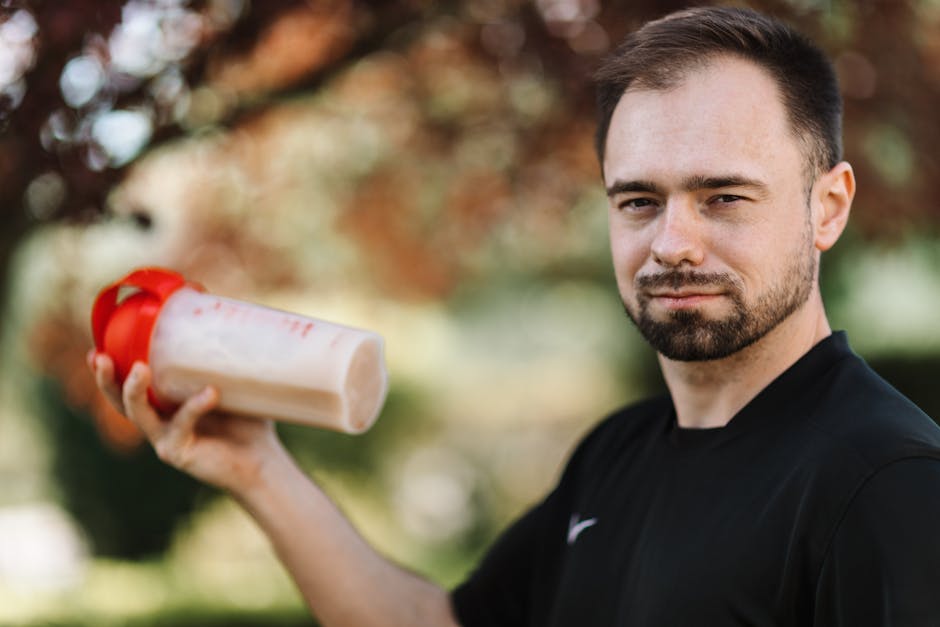The 5 Nutrition “Rules” for Building Lean Muscle Guide
Dreaming of a stronger, more sculpted physique? You hit the gym consistently, lift heavy, and push your limits. But if you’re not seeing the muscle gains you expect, the answer might not be in your workout routine – it’s likely on your plate. Building lean muscle isn’t just about lifting weights; it’s a carefully orchestrated process where nutrition plays the starring role.

Think of your body as a construction site. Weightlifting provides the blueprint and the stimulus for growth, but nutrition supplies all the essential building blocks, the fuel for the workers, and the necessary tools for repair and recovery. Without the right nutritional strategy, your hard work in the gym can literally go to waste.
In this comprehensive guide, we’re going to break down The 5 Nutrition “Rules” for Building Lean Muscle. These aren’t strict, unbendable laws, but rather fundamental principles that, when consistently applied, will optimize your body’s ability to grow, repair, and thrive. Forget restrictive diets and confusing fads; we’re focusing on sustainable, science-backed strategies that deliver real results. Let’s dive in!
Rule 1: Prioritize Protein Intake – The Ultimate Building Block
If muscle is the house, protein is the bricks. There’s no way around it: to build and repair muscle tissue, you need an adequate and consistent supply of protein. When you lift weights, you create tiny tears in your muscle fibers. Protein, specifically its amino acids, rushes in to repair these tears, making the muscle fibers stronger and slightly larger than before – this is the essence of muscle growth, or muscle protein synthesis.
How Much Protein Do You Really Need?
- General Guideline: For active individuals looking to build lean muscle, a common recommendation is to consume 1.6 to 2.2 grams of protein per kilogram of body weight (or 0.7 to 1 gram per pound of body weight) per day.
- Example: A 180-pound individual (approx. 82 kg) would aim for roughly 130-180 grams of protein daily.
Quality Over Quantity (But Quantity Matters Too!)
Not all protein is created equal. Focus on sources of complete protein, which contain all nine essential amino acids your body can’t produce on its own. These include:
- Animal Sources: Chicken breast, lean beef, fish (salmon, tuna), eggs, dairy (Greek yogurt, cottage cheese, milk).
- Plant Sources: Tofu, tempeh, lentils, beans, quinoa, edamame, and protein powders derived from peas, soy, or rice (often blended for a complete amino acid profile).
Timing Your Protein Intake
While total daily protein intake is most important, distributing your protein throughout the day can optimize muscle protein synthesis. Aim for 20-40 grams of protein every 3-4 hours, including a dose before and after your workouts, and possibly before bed.
Rule 2: Master Your Calorie Intake – The Energy Equation
To build muscle, your body needs energy – more energy than it expends. This is known as a calorie surplus. Imagine trying to build a brick house without enough bricks; it’s impossible. Similarly, if you’re not consuming enough calories, your body won’t have the resources to fuel intense workouts, repair muscle tissue, and add new mass.
Understanding Your Maintenance Calories
First, you need to estimate your maintenance calories – the number of calories you need to consume daily to maintain your current weight. Online calculators can give you a good starting point, but consistent tracking and observation of your body weight over a few weeks will provide the most accurate picture.
Creating a Smart Calorie Surplus
Once you know your maintenance, aim for a modest surplus:
- Recommended Surplus: Start with an additional 250-500 calories per day above your maintenance.
- Why Modest? A smaller surplus (e.g., 250 calories) helps minimize excessive fat gain while still providing enough energy for muscle growth. A larger surplus might accelerate muscle gain but comes with a higher risk of gaining unwanted body fat.
- Track Your Progress: Consistently monitor your weight and body composition. If you’re gaining weight too quickly (e.g., more than 0.5-1 pound per week for most individuals), you might be in too large of a surplus. If you’re not gaining, gradually increase your calories.
Remember, this surplus needs to come from nutrient-dense foods, not empty calories. Focus on whole foods that provide vitamins, minerals, and fiber alongside your macronutrients.
Rule 3: Don’t Fear Carbs – Fuel for Performance & Recovery
In the world of fitness, carbohydrates often get a bad rap, but for building lean muscle, they are absolutely essential. Carbs are your body’s primary and preferred source of energy. They fuel your intense workouts, allowing you to push harder, lift heavier, and perform longer. Furthermore, carbohydrates play a critical role in muscle recovery by replenishing glycogen stores (stored energy in your muscles) and facilitating protein synthesis.
The Power of Glycogen
When you consume carbohydrates, your body breaks them down into glucose, which is then stored as glycogen in your muscles and liver. During exercise, this glycogen is converted back into glucose to provide energy. Without sufficient glycogen, your performance will suffer, and your body might even start breaking down muscle tissue for energy.
Choosing the Right Carbs
- Complex Carbohydrates: These are your best friends. Found in whole grains (oats, brown rice, quinoa, whole-wheat bread), starchy vegetables (potatoes, sweet potatoes), and legumes (beans, lentils). They provide sustained energy, fiber, and essential micronutrients.
- Simple Carbohydrates: While generally less nutrient-dense, simple carbs (fruits, some sports drinks) can be useful around workouts for quick energy replenishment. However, the bulk of your carb intake should come from complex sources.
Carb Timing for Optimal Results
While overall daily intake matters most, timing can be beneficial:
- Pre-Workout: Consume complex carbs 1-2 hours before training to ensure your glycogen stores are full.
- Post-Workout: A combination of fast-acting carbs and protein after your workout helps replenish glycogen and kickstart recovery.
For more detailed insights, check out our guide on Fuel Your Workouts: The Role of Carbs.
Rule 4: Embrace Healthy Fats – Hormonal Support & Satiety
Fats, like carbohydrates, have suffered from misinformation. However, healthy fats are crucial for overall health and, importantly, for building lean muscle. They play vital roles in hormone production (including testosterone, which is critical for muscle growth), nutrient absorption (especially fat-soluble vitamins A, D, E, and K), and provide a concentrated source of energy.
Why Healthy Fats Matter for Muscle
- Hormone Production: Adequate fat intake is essential for the production of hormones like testosterone, which directly impacts muscle protein synthesis and overall anabolic processes.
- Vitamin Absorption: Fats help your body absorb fat-soluble vitamins, which are involved in numerous metabolic processes, including energy production and recovery.
- Satiety: Fats are more calorie-dense and take longer to digest, helping you feel fuller for longer, which can be beneficial when you’re in a calorie surplus.
- Inflammation Reduction: Certain healthy fats, like Omega-3s, have anti-inflammatory properties, aiding in recovery from intense workouts.
Sources of Healthy Fats
Focus on incorporating these into your diet:
- Monounsaturated Fats: Avocados, olive oil, nuts (almonds, cashews, pecans), seeds (pumpkin, sesame).
- Polyunsaturated Fats (especially Omega-3s): Fatty fish (salmon, mackerel, sardines), flaxseeds, chia seeds, walnuts.
- Saturated Fats: While not the primary focus, a moderate amount from whole foods like lean meats and dairy is generally acceptable.
Aim for 20-30% of your total daily calories to come from healthy fats. For a deeper dive into the benefits of healthy fats, refer to
